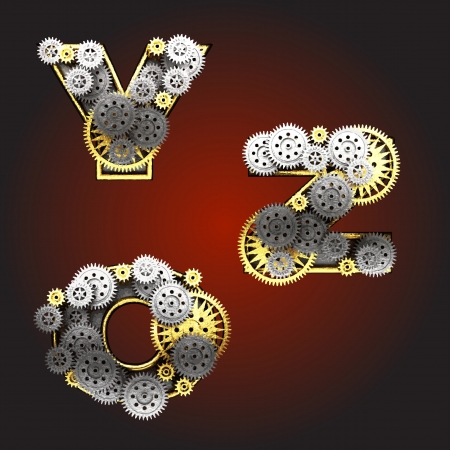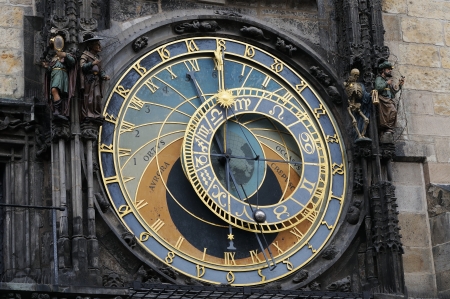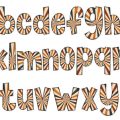Introduction to Lost Object Dreams
Dreams involving lost objects are a universal experience, yet they hold a particular resonance within the tapestry of British culture. These dreams, often marked by a search for something misplaced or forgotten, invite us to explore the deeper layers of personal and collective memory. In Britain, where history weaves through daily life—from ancient ruins in city centres to family heirlooms tucked away in attics—the symbolism of lost objects is imbued with nostalgia and longing for connection. Whether it is an old coin from a bygone era or a cherished childhood toy, such dreams mirror the nations enduring relationship with its past. As we begin our exploration into the meaning of lost object dreams, we uncover how these nocturnal journeys reflect not just individual anxieties, but also the broader British inclination to cherish, remember, and sometimes mourn what has been left behind.
2. Symbolism of Lost Objects in Dreams
Within the tapestry of British dreams, lost objects carry a weighty symbolism that reaches deep into the collective psyche. The recurring motif of searching for something misplaced—be it a cherished heirloom, a familiar key, or even a humble umbrella—often reveals more than mere forgetfulness. In the context of British nostalgia and history, such dreams evoke a sense of longing, connection to ancestry, and an unspoken yearning for stability amid change.
British culture abounds with iconic symbols, each steeped in centuries of meaning. When these objects appear lost within dreams, they often mirror broader themes from national folklore and personal memory. Below is a table illustrating some common British symbols found in dreams, alongside their archetypal meanings and possible dream interpretations:
| Object | Symbolic Meaning | Dream Interpretation |
|---|---|---|
| Pocket Watch | Heritage, Time Passing | A longing for the past; anxiety about legacy or fleeting moments |
| Umbrella | Protection, Preparedness | Sensing vulnerability; feeling exposed without traditional safeguards |
| Key | Access, Secrets | A search for understanding or a desire to unlock hidden aspects of self or history |
| Letter | Communication, Memory | Unresolved messages from the past; wish to reconnect with loved ones or ancestors |
| Tin Soldier | Loyalty, Innocence Lost | Nostalgia for childhood; grappling with changing values or lost certainties |
These symbols are not merely relics but act as conduits between the dreamer and collective British memory. A lost object in a dream may represent more than physical absence—it can point to feelings of displacement amid societal shifts, the quiet ache for bygone eras, or the resilience found in tradition. Thus, when one dreams of searching for these emblematic items, it is often an invitation to reflect upon both personal journeys and the shared narratives that bind generations across Britain.

3. British Nostalgia: From Heirlooms to High Streets
The dreams of lost objects resonate profoundly with the British sense of nostalgia, a sentiment deeply woven into the fabric of national identity. In Britain, nostalgia is not merely a wistful longing for the past—it is an active engagement with history, memory, and tradition. When we dream of misplacing a treasured locket or an old family photograph, these visions tap into the collective consciousness shaped by centuries of cherished customs and generational continuity.
Heirlooms, in particular, hold a special place in British hearts. Whether it be a grandmother’s brooch or an Edwardian tea set passed down through generations, such items are imbued with stories and personal significance. The loss of these objects in dreams often mirrors anxieties about losing touch with one’s heritage or the fading echoes of ancestral voices. It is as though the subconscious mind seeks to preserve not just material possessions but also the intangible legacy they represent.
This nostalgic thread extends from stately homes filled with relics of bygone eras to the bustling high streets lined with antique shops and vintage markets. Here, Britons indulge their affection for ‘the old days’—an affection reinforced by literature, television period dramas, and community traditions such as village fêtes or Remembrance Sunday ceremonies. In this way, dreaming of lost objects can become a symbolic journey through the corridors of history, prompting reflection on what it means to belong to a nation so intimately connected to its own story.
4. Historical Context: Loss and Rediscovery in British Folklore
Throughout British history, the motif of lost and rediscovered objects weaves through countless legends and folk tales, shaping the collective consciousness and subtly influencing how dreams are interpreted today. These stories not only entertain but also serve as allegories for personal growth, hope, and the cyclical nature of loss and recovery that is deeply embedded within British cultural memory.
The ancient tale of King Arthur’s sword Excalibur, lost to the waters of Avalon and later returned by the Lady of the Lake, is a quintessential example. This legend echoes the themes of rightful ownership, destiny, and restoration—a narrative thread that recurs in many dream interpretations related to lost objects. Similarly, the story of the lost crown jewels during the English Civil War and their eventual recovery symbolises resilience and national continuity amidst turmoil.
These folkloric elements are not mere relics of the past; they continue to inform modern British dream analysis. Dreams about searching for lost heirlooms or encountering forgotten treasures often reflect a yearning for connection with one’s roots or an unspoken desire for reconciliation with history. The symbolic resonance of such objects is amplified by their storied presence in national myths.
Legend |
Lost Object |
Cultural Significance |
Modern Dream Interpretation |
|---|---|---|---|
| King Arthur & Excalibur | Sword | Leadership, rightful power | Seeking purpose or authority in life |
| Crown Jewels (English Civil War) | Crown Jewels | National identity, resilience | Desire for stability or reclaiming heritage |
| The Lost Village of Dunwich | Sunken settlements | Impermanence, memory | Anxiety about change or forgetting one’s origins |
| The Silver Arrow of Robin Hood | Arrow/prize | Justice, hope for the oppressed | Aspiration for fairness or personal achievement |
This enduring relationship between folklore and dream symbolism reveals how British nostalgia is more than sentimentality—it is an active process of remembering and reimagining identity. The act of losing and finding objects in these tales offers a comforting structure for interpreting similar experiences within dreams, providing both solace and inspiration to those navigating their own journeys through loss and rediscovery.
5. The Emotional Landscape: Personal and Collective Loss
Lost object dreams often stir a potent mix of emotions, echoing not only our individual anxieties but also the collective experiences shared by generations across Britain. On a personal level, such dreams may arise from moments of bereavement, separation, or simply the passage of time—an emblem of cherished possessions, relationships, or identities slipping beyond reach. For many in Britain, these nocturnal visions tap into a deeper wellspring shaped by the nation’s unique historical journey.
Britains landscape is etched with memories of profound loss—marked most acutely during the world wars and the subsequent decades of societal transformation. The wartime experience, which saw families separated, homes destroyed, and heirlooms lost to bombings or necessity, continues to cast a long shadow over the national psyche. In this context, dreams of lost objects become more than mere personal anxieties; they serve as subtle reminders of communal grief and endurance, connecting dreamers to stories passed down through families and communities.
Moreover, British nostalgia often centres around the idea of “what once was” — be it Edwardian tea sets passed through generations or photographs faded with age. The longing for these lost items mirrors a broader yearning for stability amid change. As such, when one dreams of searching in vain for an old key or a beloved book, it may reflect not just private sorrow but also resonate with a shared sense of cultural displacement and adaptation.
The emotional landscape mapped out by these dreams thus intertwines personal narratives with national history. They invite reflection on how loss—whether experienced firsthand or inherited through stories—is woven into both our subconscious minds and the very fabric of British identity. The act of dreaming becomes a quiet testament to resilience, remembrance, and the enduring human need to find meaning in what has been left behind.
6. Finding Meaning: Interpreting Lost Object Dreams Today
In the tapestry of modern British life, where tradition meets the whirlwind of change, dreams of lost objects continue to hold a poignant resonance. These nocturnal visions, steeped in echoes of personal and collective memory, invite dreamers to pause and reflect on their significance. For many in contemporary Britain, interpreting such dreams is more than a whimsical pastime; it offers a gentle guiding hand through the complexities of identity, belonging, and emotional wellbeing.
The Contemporary Context
Today’s British society is shaped by rapid technological advances and shifting social landscapes. Amidst this flux, the sense of loss—be it of time-honoured customs, family heirlooms, or even cherished public spaces—often finds its way into our dreams. When one dreams of misplacing an object, it may symbolise anxieties about losing touch with heritage or adapting to a new era. Recognising these themes can foster understanding and acceptance, helping individuals navigate present-day uncertainties while honouring their roots.
Seeking Comfort Through Dream Interpretation
To interpret lost object dreams is to embark on a personal journey. Begin by considering the object itself: was it something quintessentially British—a teacup passed down generations, a school badge from childhood days, or perhaps an old letter tied with ribbon? Such items are not mere props but carriers of stories and sentiment. Reflecting on why these objects appear in your dreams can provide comfort, reconnecting you with the warmth of nostalgia and the enduring ties that bind families and communities.
Gaining Insight for Today’s Dreamers
Dreams of lost objects may also act as signposts for self-discovery. They encourage us to ask: What am I yearning for? What part of my past do I wish to reclaim or understand better? In the context of British history, such dreams can be reminders to cherish the lessons of resilience and adaptation. By gently analysing these dreams—perhaps through journaling or quiet contemplation—one may glean insights into unresolved emotions or desires for reconnection.
Ultimately, lost object dreams remind us that even in moments of uncertainty or change, there is solace to be found in memory and meaning. For today’s dreamers across Britain, these nighttime narratives offer both comfort and wisdom—a bridge linking yesterday’s treasures with tomorrow’s hopes.


